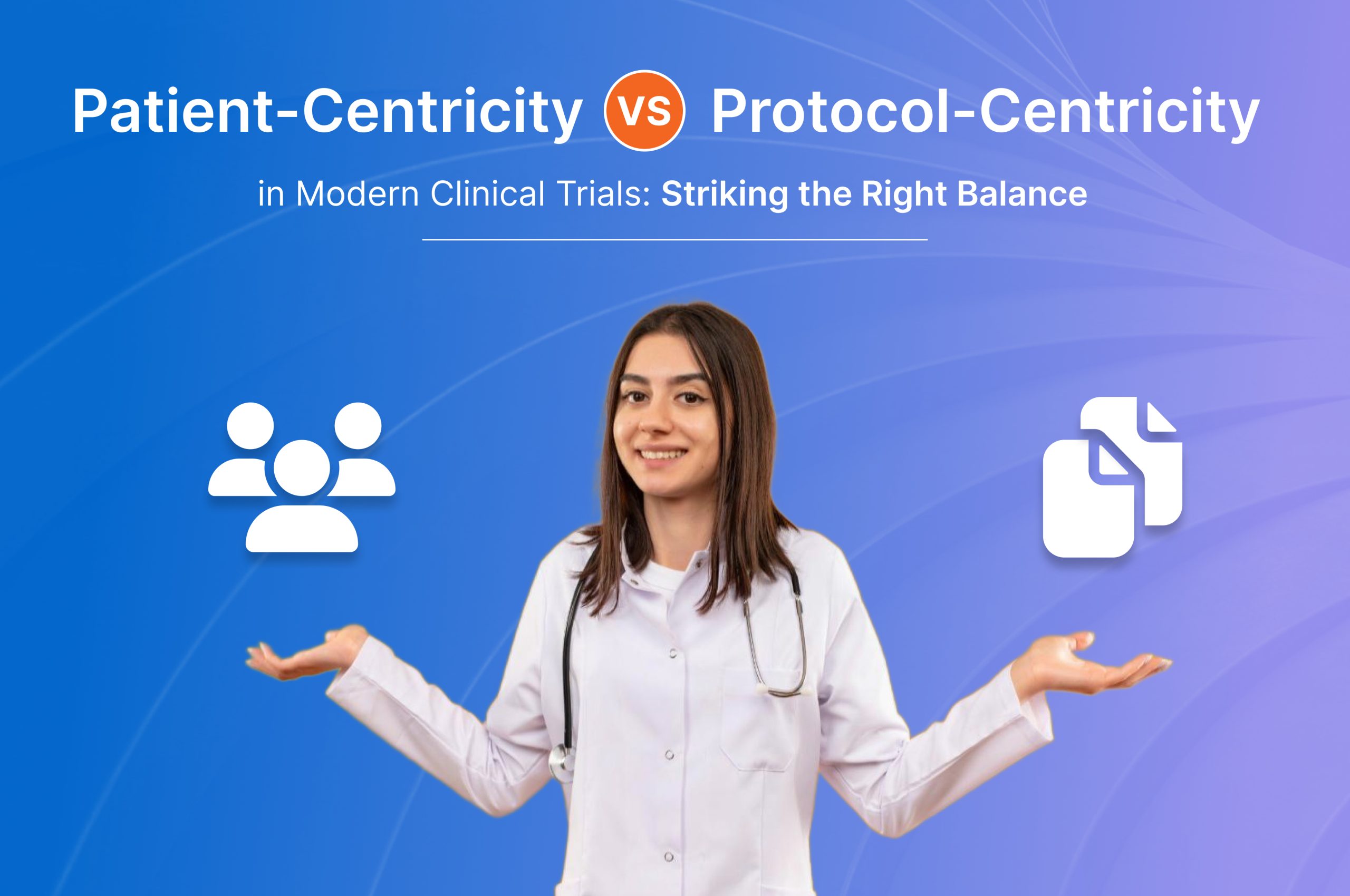Clinical trials are an essential part of today's pharmaceutical and healthcare ecosystem for gaining access to medical advancements and bringing new medications and treatments to market. Yet, for a clinical study to be successful, patients must be ready to take part, feel comfortable providing information, and make many trips to the location as needed.
Regrettably, because most stakeholders are concerned with financial results, patient-centricity is frequently overlooked in clinical trials. Hence, it is normal for patients to express dissatisfaction with their experience taking part in a study, and many of them discourage others from doing the same.
Thus, methods that enhance the patient experience must be put into place by trial sponsors. Recruiting issues and the ensuing trial delays can not only consume a lot of time and resources, but they can also seriously slow down the development of potentially game-changing discoveries that can come from a clinical study. Continue reading as we go through the idea of patient-centricity in clinical trials.
What is Patient-Centricity in Clinical Trials?
Clinical trials should be planned and carried out in a way that takes the patient's perspective into account at every level of the investigation. This indicates that activities involved in trial design, such as patient engagement, outreach, enrolment, and recruiting, should be optimized for the patient's comfort.
To do so, sponsors must have a clear understanding of the finer nuances of the patient experience. As an example, a recent patient survey indicated that travel issues were the top reason for patients to drop out of a trial, followed by a lack of compassion from the trial staff. By gathering a sense of what matters to a patient and addressing those needs effectively, both sponsors and participants can conduct their study a lot more effectively.
Patient Centricity for Clinical Trial Recruitment
Implementing a patient-centric strategy for a clinical study entails comprehending the intended audience and choosing the best, most sympathetic, and most efficient ways to communicate with them. While specifics differ from research to study, the following factors should be taken into account while speaking with patients:
- Consider racial, gender, and ethnic sensitivities and depictions while using text and visuals that connect with your target audience.
- Ensure that symptoms are stated clearly.
- Outreach copy should be lucid, succinct, and direct so that the patient has access to all the information he requires.
- Make informative landing pages that are simple to browse and that clearly state the inclusion and exclusion requirements.
- Be sure to emphasize the advantages of joining, such as specialist care, travel expenses, etc.
Patient Centricity for Clinical Trial Enrollment
After outreach, the patient enrollment process must be carried out without a hitch. Many patients claim that clear and constant communication is one of the most important components of a successful trial experience. Some methods for emphasizing patients throughout enrollment include:
- Strategically choosing trial sites to minimize patients' travel needs
- Simple to use and understand pre-screeners
- Clearly state when customers may anticipate hearing from you
- The support workers received thorough training and a wealth of material
- Site recommendations made quickly and effectively by the support personnel
- A culture of open dialogue at all levels
Patient Centricity for Clinical Trial Participants
Having a good relationship with the site staff is crucial when patients are randomly assigned to the clinical study. Patients will have a far more favorable trial experience if they know why they are there, feel valued, and are treated with empathy. Here are some tactics you may use to do this-
- Keep up frequent communication
- Constantly provide status updates and keep them informed as necessary
- Specify payment methods in detail if there is compensation involved.
- Make sure the site personnel has the expertise to assist patients and provide answers to their inquiries.
- An expression of appreciation for the patient's involvement
In Summation
In conclusion, building better patient experiences in clinical trial recruitment is crucial for advancing medical research and improving patient outcomes. By prioritizing patient-centric approaches, we can address the existing challenges and enhance the overall recruitment process.
It takes a patient-centric strategy, efficient communication, simplified processes, individualized involvement, eliminating barriers, and continual improvement to provide improved patient experiences in clinical trial recruiting. We can foster an atmosphere where patients feel empowered, knowledgeable, and motivated to engage in clinical trials by adopting these concepts, thereby promoting medical research and enhancing patient care.
But even with the best patient experience, a clinical trial is incomplete without an efficient eClinical software suite powering it. Experience excellence with Octalsoft’s end-to-end, feature-loaded software solutions ranging from CTMS, to EDC to IWRS and on to ePRO and Portfolio & Project Management tools to name a few. Want to know more about the full extent of software solutions covered by our eClinical suite? Book a quick chat with one of our experts by following this Link. We look forward to hearing from you.
As always, watch this space for more information, updates and fresh insights for your clinical trials in Octalsoft’s vast library of scientifically driven publications written by our team and industry key opinion leaders.



